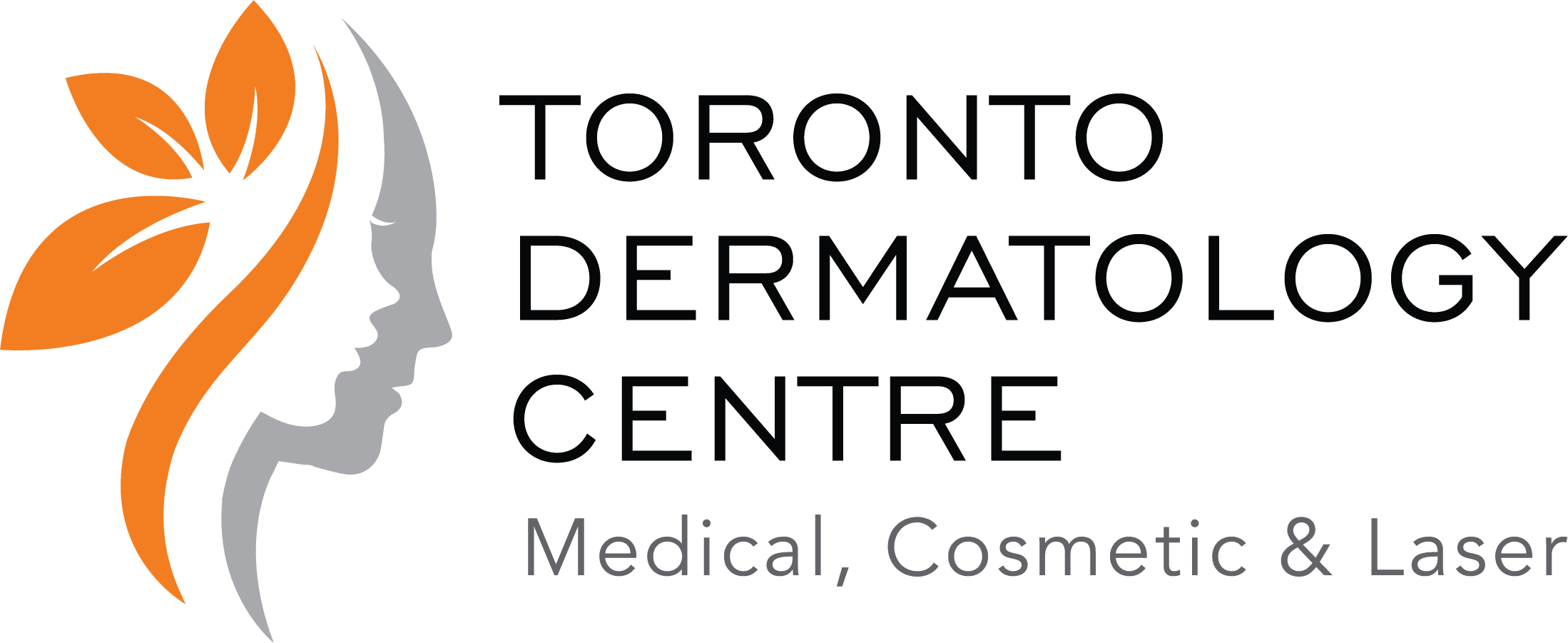The Toronto Dermatology Centre is one of the premiere places in Canada to manage eczema. Our staff of outstanding dermatologists and estheticians can offer both a comprehensive assessment and diagnosis of your skin, and also discuss all the treatment options including: moisturizer selection, discussion of clothing choices, humidifiers, and other behaviours that affect skin hydration, and physician-grade skin products exclusive to our clinic. In some cases prescription creams are required and occasionally pills to treat itch or infection.
The terms “eczema” or “dermatitis” are used to describe a group of skin conditions characterized by inflamed skin. Eczema can be red, blistering, oozing, scaly, brownish, or thickened and usually itches. A special type is called atopic dermatitis or atopic eczema.
Atopic Dermatitis or Atopic Eczema
The word “atopic” means there is a tendency for excess inflammation in the skin and linings of the nose and lungs. This often runs in families with allergies such as hay fever and asthma, sensitive skin, or a history of atopic dermatitis. Although most people with atopic dermatitis have family members with similar problems, 20% of them are the only ones in their family with the condition.
Atopic eczema is very common in all parts of the world. It affects about 10% of infants and 3% of the total population in North America. Atopic eczema can occur at any age but is most common in infants to young adults. The skin rash is very itchy and can be widespread, or limited to a few areas. The condition frequently improves with adolescence, but many patients are affected by atopic eczema throughout life, although not as severely as in early childhood.

Infantile Eczema
When the disease starts in infancy, it is called infantile eczema. This is an itchy, oozing, crusting rash and occurs mainly on the face and scalp, but patches can appear anywhere. Because of the itch, children may rub their head, cheeks, and other patches with a hand, a pillow, or anything within reach. In many cases children eczema disappears before two years of age. Proper treatment can help until time solves the problem.
Eczema in Later Life
In teens and young adults, the patches of eczema typically occur on the hands and feet. However, any area such as the bends of the elbows, backs of the knees, ankles, wrists, face, neck, and upper chest may be affected. When eczema appears on the palms, backs of the hands, fingers, or on the feet, there can be episodes of crusting and oozing.
Other eczema patches in this stage are typically dry, red to brownish-gray, and may be scaly or thickened. The thickened areas may last for years without treatment. The intense, almost unbearable itching can continue, and may be most noticeable at night. Some patients scratch the skin until it bleeds and crusts. When this occurs, the skin can get infected.
Since the eczema does not always follow the same pattern, proper, early, and regular treatment can bring relief and may reduce the severity and duration of the disease.
Frequently Asked Questions About Atopic Dermatitis
Rarely (perhaps 10%). Although some foods may provoke atopic dermatitis, especially in infants and young children with asthma, eliminating those foods is rarely a cure. You should eliminate any foods that cause immediate severe reactions or welts/hives.
Rarely. The elimination of contact or airborne substances does not bring lasting relief. Occasionally, dust and dust-catching objects like feather pillows, down comforters, kapok pillows and mattresses, cat and dog dander, carpeting, drapes, some toys, wool, and other rough fabrics, can worsen atopic dermatitis.
Not usually. A positive test means allergy only about 20% of the time. If negative, the test is good evidence against allergy.
Not usually. They may even make the skin condition worse in some patients.
See your dermatologist for advice on avoiding irritating factors in creams and lotions; rough, scratchy, or tight clothing; and woolens. Softening your water may be helpful. Rapid changes of temperature and any activity that causes sweating can aggravate atopic dermatitis. Proper bathing, moisturizing (see Dry Skin section), and dealing with emotional upsets which may make the condition worse can be discussed. A cool mist humidifier in your home/bedroom/workplace is a good idea.
Your dermatologist can prescribe external medications such as steroids and newer non-steroid creams and ointments (e.g. Zoryve®, Protopic®, Elidel®, Eucrisa®). Internal medications such as over-the counter (e.g. Reactine, Claritin, Aerius, Allegra, and their generics) & prescription antihistamines (e.g. Blexten®, Rupall®, Reactine®, Atarax®) can sometimes help with itch . Oral or topical antibiotics may be prescribed if there is a secondary infection. For moderate to severe cases, your dermatologist may recommend ultraviolet light (“phototherapy”) treatments, or other treatments such as biologics (Rinvoq®, Dupixent®, Cibinqo® or Adtralza®; some are pills, others are self-administered injections) or traditional systemic therapies (e.g. methotrexate, imuran, cellcept, prednisone). Another option is to participate in our clinical research trials on atopic dermatitis & eczema where we have access to new, cutting-edge therapies not yet available on the market; this research is critical in helping bring new therapeutic options to the market and to help other patients.
Atopic dermatitis is a very common condition. With proper treatment, the disease can be well-controlled in the majority of people.
Here is a selection of scientific and media articles authored by or quoting our renowned dermatologists as they pertain to eczema/atopic dermatitis. Toronto Dermatology Centre is proud to be among the largest and most comprehensive treatment centres for eczema/atopic dermatitis in Canada.
Toronto Dermatology Centre is located in Toronto, Ontario, and serves men and women in North York, Vaughan, Richmond Hill, York, Aurora, Thornhill, Mississauga, Etobicoke, Scarborough, Pickering, Peterborough, Guelph, Kitchener, Waterloo, Hamilton, Oshawa, Barrie, downtown, midtown, uptown and all of Greater Toronto (GTA).
Thinking of visiting Toronto’s premier skin clinic soon?
Fill out the inquiry form below and let us know your area of interest.
Call us today @ 416.633.0001
